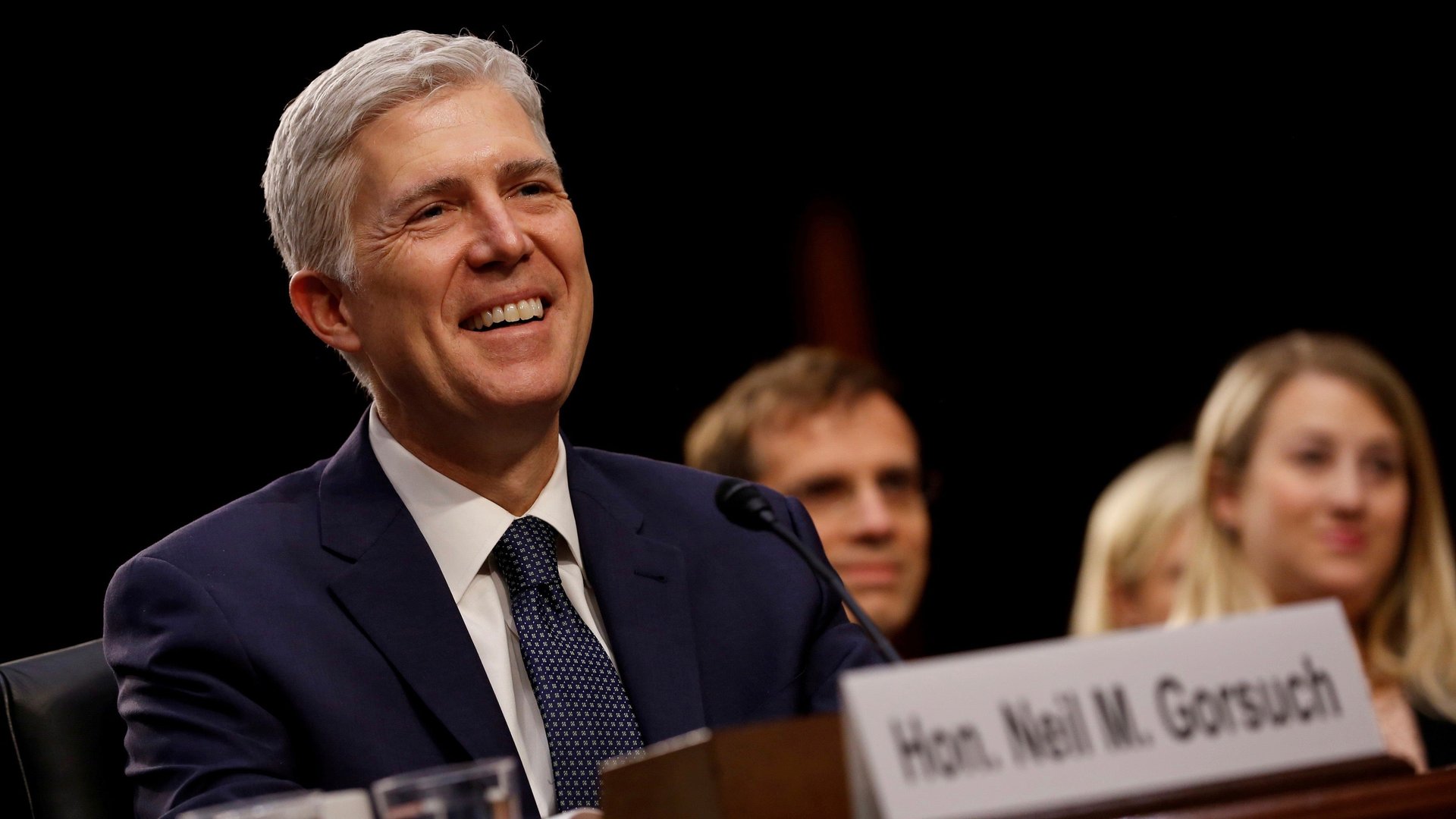The new US Supreme Court justice catches a break on his first big case
This week was going to be huge for the new US Supreme Court justice, Neil Gorsuch. He’s starting on the bench after contentious confirmation hearings and was expected to face a controversial church-and-state case immediately. But it looks like he could get a break, thanks to Missouri’s governor.


This week was going to be huge for the new US Supreme Court justice, Neil Gorsuch. He’s starting on the bench after contentious confirmation hearings and was expected to face a controversial church-and-state case immediately. But it looks like he could get a break, thanks to Missouri’s governor.
Trinity Lutheran Church of Columbia v. Comer, slated for its Supreme Court hearing on April 19, is about the denial of a state grant to a religious group based on a Missouri constitution prohibition. Because many of the feelings about Gorsuch—good and bad—stem from his support for religious plaintiffs, and because his decision here might have signaled future positions, this case was widely anticipated.
Here’s why: In 2012, Trinity Lutheran Church sought a grant from the Missouri Department of Natural Resources to repave its playground with soft, recycled materials and was denied because the state constitution prohibits use of money ”taken from the public treasury, directly or indirectly, in aid of any church, sect, or denomination of religion.” The church fought the denial in the lower courts, unsuccessfully, and in January 2016 was granted high court review.
Interestingly, oral arguments were delayed for more than a year after Justice Antonin Scalia died. Other cases were heard while there were only eight of the nine Supreme Court seats filled, but SCOTUS Blog speculates this case, which normally would have been scheduled for last spring, was delayed until the open seat was filled, perhaps because of its particularly controversial nature. After a dramatic year of political wrangling over that hot spot, they are finally nine again.
Then, on April 13, Missouri governor Eric Greitens reversed positions on grants for religious organizations. “We have hundreds of outstanding religious organizations all over the state of Missouri who are doing great work on behalf of kids and families every single day. We should be encouraging that work. So, today we are changing that prejudiced policy,” he said in a statement.
In light of the change, the Supreme Court has asked the parties to submit a letter by April 18—just one day before arguments were set to be heard—explaining how the case is impacted by the governor’s announcement. Although the shift doesn’t change the state’s past decision, it certainly makes the case toothless. And maybe moot: the church can now just re-apply for a grant.
With the reversal in position, Greitens may be attempting to ensure that this matter doesn’t bring extensive negative national focus to his state, undercutting the need for the Supreme Court review. It is perhaps notable, given that religion’s at issue here, that he’s Missouri’s first Jewish governor and is eying the US presidency, according to a January profile in The Forward.
For Gorsuch, who’s been the center of attention since February—and who also happens to be the first Protestant on the Supreme Court since 2010—the Missouri governor’s pre-emptive strike works out nicely. It’s a brief reprieve, a chance to ease into the hot seat.